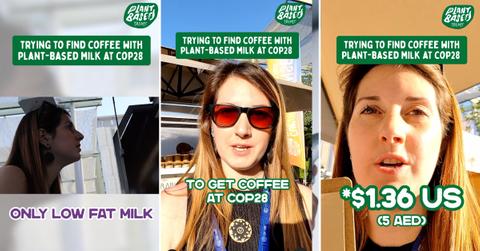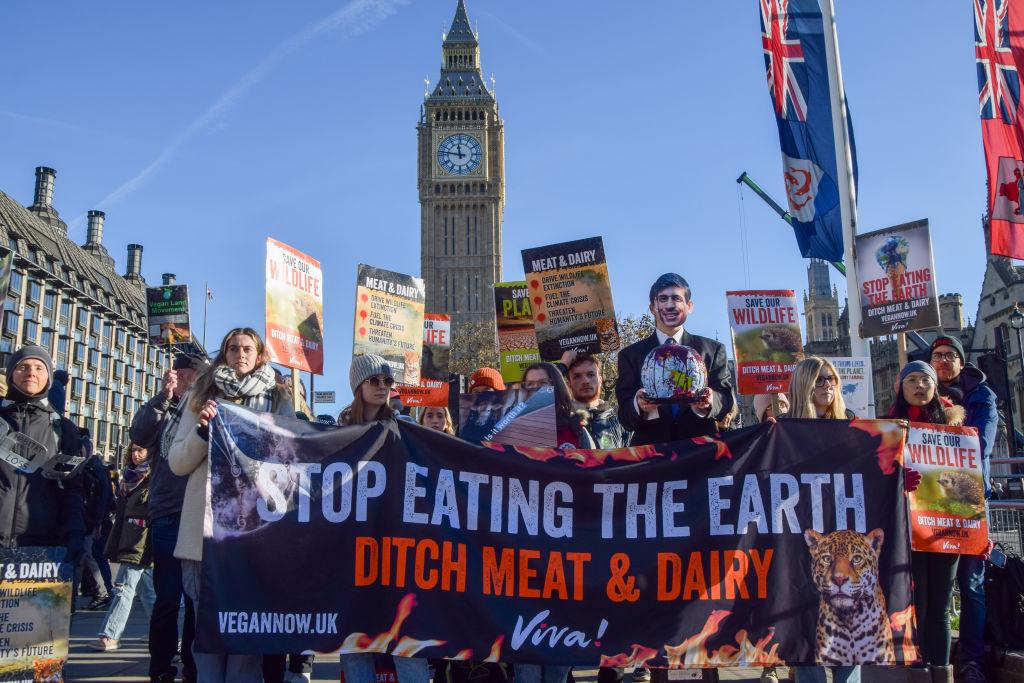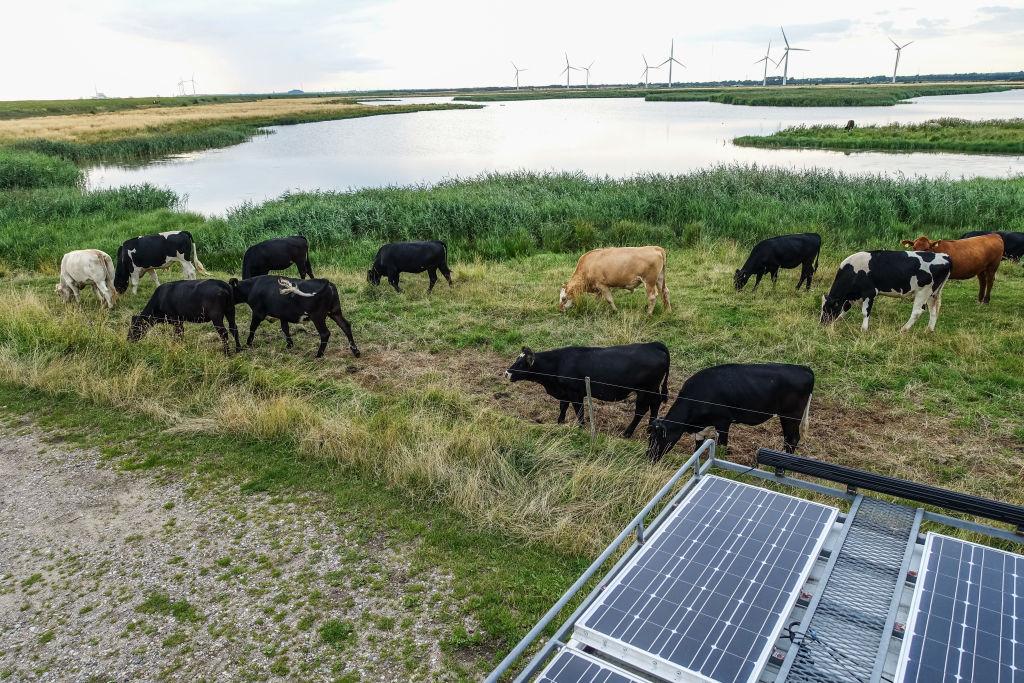At COP28, Meat Lobbyists Are Going "Full Force," While Guests Struggle to Find Plant-Based Options
Published Dec. 1 2023, 4:49 p.m. ET

Though COP28 promised more vegan-friendly food offerings than ever for 2023, the meat and dairy industries are planning to show up “in full force” according to leaked documents, which falsely present meat as a vital, sustainable, and nutritional food source.
The lab-grown meat served at COP27 in 2022 was a decision that earned the United Nations (UN) praise from animal welfare and alt protein groups at the time. However, The Guardian has since reported that ex-UN officials said their work reporting on animal agriculture methane emissions was censored and sabotaged by pro-meat lobbyists, resulting in a cattle-based controversy.
Per The Guardian, industrial animal agriculture is the largest source of methane. And JBS — the world’s highest-polluting meat company — gained favor during COP27 talks as a national delegate of Brazil, the world’s No. 1 beef exporter.
Here's a look into the meat and dairy being served at COP28.

Meat and dairy industries “clearly threatened by our momentum”.
As world leaders convene at COP28, the meat and dairy industries are ramping up for a significant "PR push" and to hit the conference in "full force," per DeSmog.
And while this is certainly inappropriate for a climate conference, some activists think it's actually a good thing that the meat industry is having to work so hard to disprove science.
“I see the fight by big meat and dairy as positive, in the sense that they see the need to fight us,” Switch4Good Executive Director, Founder, and vegan Olympian Dotsie Bausch tells Green Matters exclusively on Friday, Dec. 1 2023.
“For as long as we can remember, they have ignored us, then they certainly spent time laughing at us, but now they are clearly threatened by our momentum and afraid of losing their grip on society,” Bausch adds.
That paranoia isn't unfounded. On Dec. 1, 2023, 134 countries (representing 75 percent of food-based greenhouse gas emissions) signed the first-ever COP resolution for a food system transformation, committing to integrate food systems into each country’s climate plans by 2025.

“Global per capita meat, dairy, and egg consumption has been accelerating since the 1950s [and] contributing to the breach of five planetary boundaries, specifically, climate change, land-use change, biodiversity, phosphorus and nitrogen, and water use,” Plant Based Treaty's Global Campaign Coordinator Anita Krajnc said in a statement shared with Green Matters, in response to the above-mentioned resolution signed on Dec. 1.
Despite policy interference from meat and dairy lobbyists and other distractions that remain, the plant-based progress is palpable.
“While on the surface it feels like our movement is being attacked, underneath it all, I see hope,” Bausch tells Green Matters. “The fact that meat and dairy are shaking in their boots — worried their stronghold will loosen — is exactly what we have all hoped for, for a very long time.”
Vegan COP28 attendees can’t even find plant-based milk.
While the plentiful plant-based menu options for COP28 initially earned the UN praise, that goodwill quickly abated for attendees struggling to access vegan options.
In an Instagram video posted by Plant Based Treaty on the first day of COP28, Thursday, Nov. 30, attendees were hard-pressed to find coffee with plant milk available. They ultimately discovered one vendor who offered vegan milk — for an upcharge.
"It’s a little odd that dairy milk — which requires more land and water to produce than plant milks (not to mention the greenhouse gas emissions) — is the default and costs less than the planet-friendly options," Plant Based Treaty captioned the video.
“This generation won’t put up with their lies. This generation asks hard questions and they don’t believe in marketing just because it says, ‘Milk Does a Body Good,’” Bausch tells us. “They say, ‘prove it to me!’ Now it is time we rise to the occasion and continue to fight like our lives depend on it, because they do.”